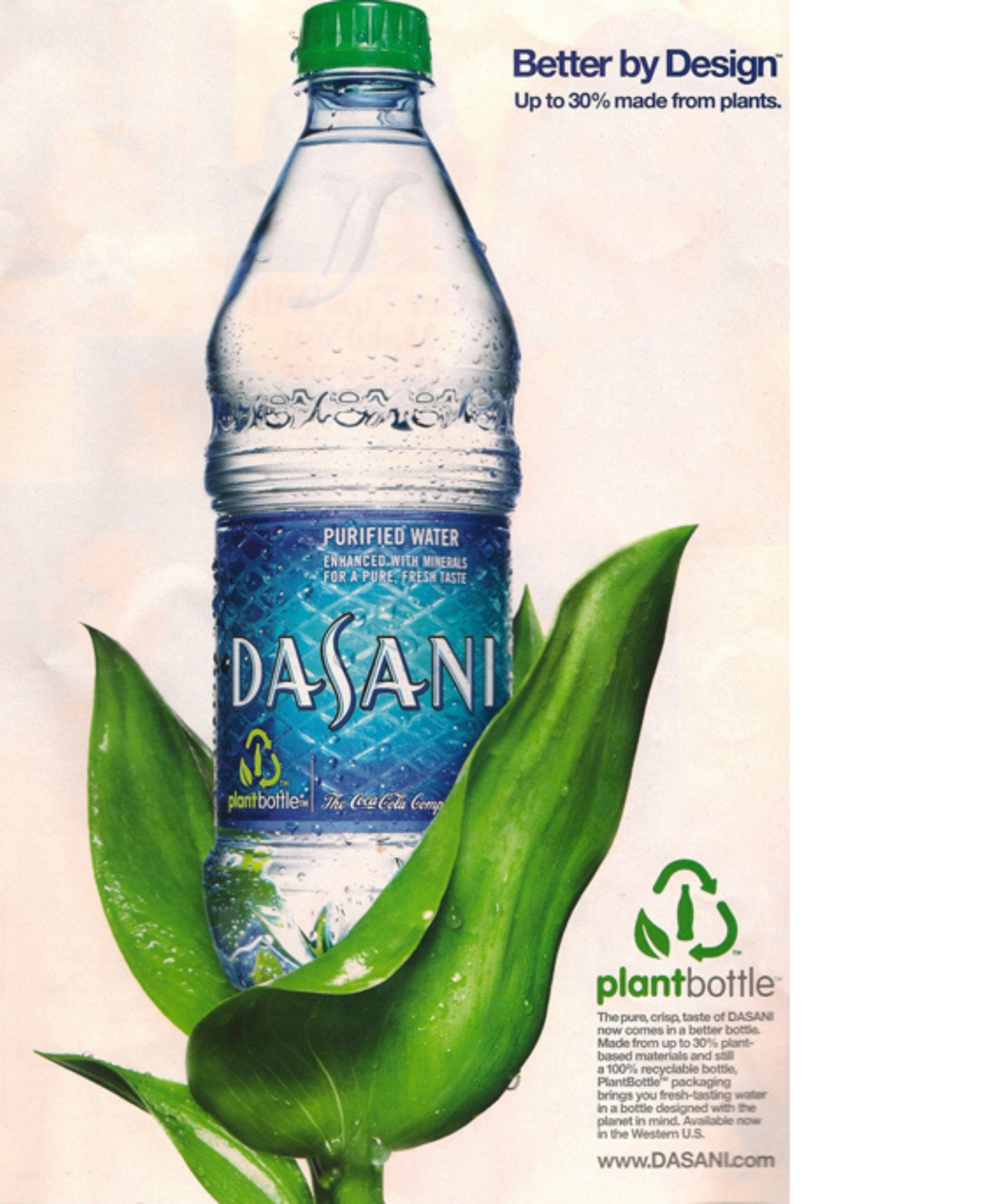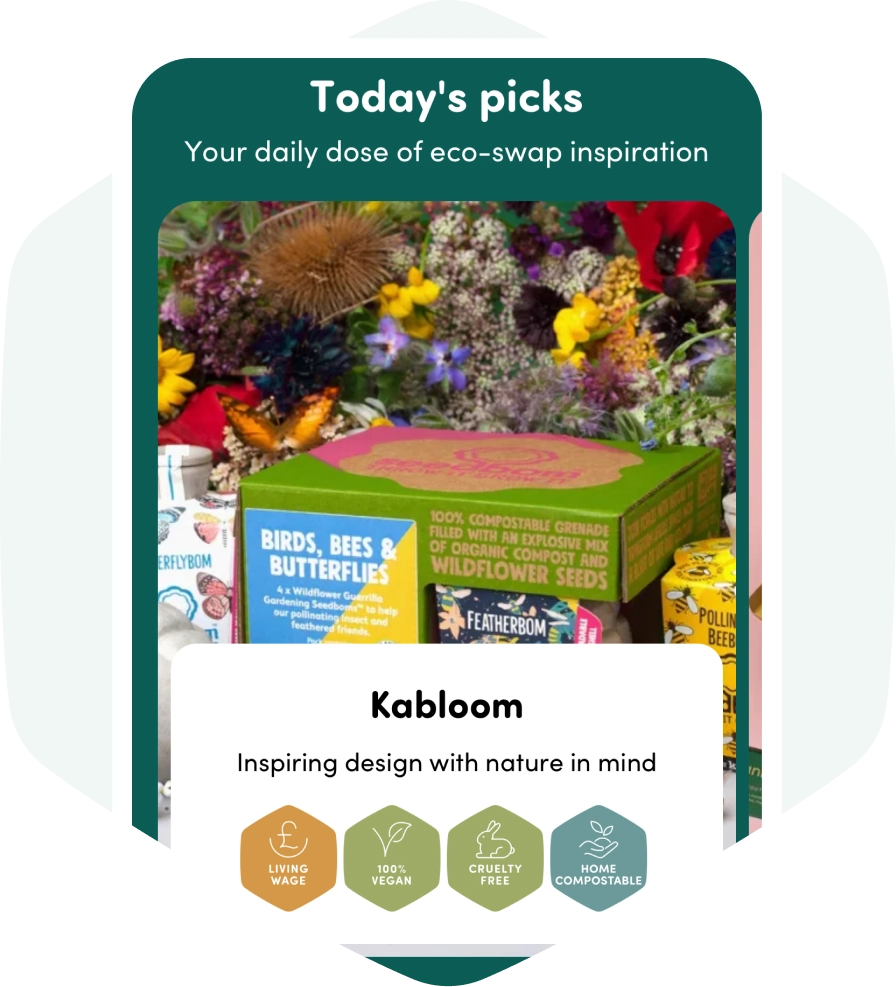As of 2021, 73% of UK consumers want to be more sustainable while 50% have said that 2020 was a “wake up call” to protect the environment. In response, more and more companies have come to the realisation that they must embrace sustainability to ensure their own longevity.
While some are taking meaningful action to lessen their impact on the environment and treat people fairly, others continue to neglect planet and people for profit. These days it seems that pretty much every company is busy announcing new sustainability initiatives… The unfortunate truth is that these claims are often nothing more than deceptive marketing used to persuade us that an organisation’s products, aims and policies are environmentally friendly. This is greenwashing.
The chances are that we’ve all fallen victim to greenwashing at least once. Big budget marketing campaigns can be incredibly convincing.
That said, there’s things to look out for and ways to recognise greenwashing before it’s too late. Here’s how.
Look beyond buzzwords
When brands use buzzwords like ‘sustainable’, ‘ethical’, ‘eco-friendly’, ‘green’, don’t just take their word for it. Look out for genuine scientific evidence to back up their claims.
H&M’s ‘Conscious Collection’ is a classic case of greenwashing through the use of buzzwords. The fast-fashion giant released a ‘Conscious Collection’ made out of more sustainable materials like organic cotton, recycled polyester and Tencel. The problem was that H&M didn’t provide any information to demonstrate how their new range was more eco-friendly. The Norwegian Consumer Authority called H&M out for greenwashing issuing the following statement:
"Based on the Norwegian website of H&M we found that the information given regarding sustainability was not sufficient, especially given that the Conscious Collection is advertised as a collection with environmental benefits.”
The lesson here? Look beyond buzzwords and towards scientific evidence.
In regard to the H&M case it’s also worth mentioning that while fast fashion brands are now creating lines made from more sustainable fabric, the product is still greenwashed in of itself on the basis that the fast fashion model simply cannot deliver on net zero targets. According to Vega Sims of Just Luve, focus should really be on slowing production rates rather than introducing sustainable fabrics.
Choose brands over products
A brand may have a selection of sustainability certified products. They’ll often push these to the forefront of their marketing efforts as a way to portray their organisation as altogether sustainable. For example, it’s quite easy to find a car manufacturer with a line-up of fuel powered cars alongside one electric model. Is this one electric model enough for us to recognise this car manufacturer as sustainable? Of course it isn’t.
Look out for mission-driven brands that incorporate sustainability and ethics into their entire business model. These companies exist to make sustainable the new normal and spread their message across the world. To identify them, expect 100% transparency across everything that they do. Truly ethical and sustainable brands will have nothing to hide.
Don’t be misled by ‘green imagery’
Pictures capture attention better than a slogan or headline. They tell a thousand words and help the potential buyer visualise the product or service. Brands use imagery that depict their products or services as environmentally friendly without providing sufficient information to back it up. The use of the colour green, nature, leaves and animals is harnessed to give off this impression. Given the power of imagery, this is often enough to convince us that we’re buying into an environmentally considerate brand.
Dasani offers the perfect example of greenwashed imagery. The use of plants is simply deceptive given they sell single use plastic products on a mass scale. Also take note of the Plant Bottle logo that looks suspiciously similar to the recycling symbol…

Look for environmental certifications from third party organisations
Keep an eye out for established third party environmental certifications to help you verify a brand’s claims. They offer an impartial viewpoint that can help you authenticate important sustainability & ethical considerations and avoid greenwashing. Does a company make lots of claims without any relevant certifications? Ask yourself why this might be and in the case of any doubt look elsewhere. Some of the most recognised certifications to consider include:
- FAIRTRADE mark: supports social, economic & environmental aspects of production
- Soil Association: leading organic certifier
- Leaping Bunny: gold standard for cruelty-free products
- Certified B Corporation: for businesses that balance purpose with profit
- Rainforest Alliance: fighting deforestation and climate change
- Better Cotton Initiative: promoting better standards in cotton farming
Keep in mind that most certifications have specific criteria, so even if a product has a third-party emblem, it doesn't mean the product is sustainable or ethical in every way.
Use ethy to find accredited sustainable businesses
We’re not suggesting that ethy is all you need to avoid greenwashing altogether, but it can certainly provide more transparency on businesses and help you discover shops that genuinely believe in sustainable and ethical practices. The businesses that we feature have been founded on environmentally considerate and moral principles. Sustainability is their purpose and drive rather than just a marketing ploy to increase profits.
ethy’s accreditation framework has been designed to mitigate greenwashing as much as possible. We run thorough checks and communicate directly with businesses to find out more about how they operate and what action they take to minimise their impact on the environment. Our ethyBadges act as clear identifiers that demonstrate how each business is contributing towards the UN Sustainable Development Goals. With ethy you can significantly reduce your chance of falling victim to greenwashing.
A final note
But it’s not all doom and gloom. As consumers, we’re becoming more and more conscious of greenwashing. Meanwhile the reputational cost of being publicly shamed for bad or misleading practices has never been higher (and rightly so!). Furthermore, the UK watchdog have also begun addressing greenwashing as a real issue by investigating whether brands marketing their products as “eco-friendly” and other green marketing are misleading consumers and breaking the law.
Yes greenwashing persists, but it’s becoming increasingly hard for companies to get away with it which will surely mean less cases. As consumers become more empowered with knowledge and further governmental regulation is introduced, an end to widespread greenwashing can now be considered possible.
You may also like...
Sign up for our newsletter
Get the latest sustainability news delivered directly to your inbox.






